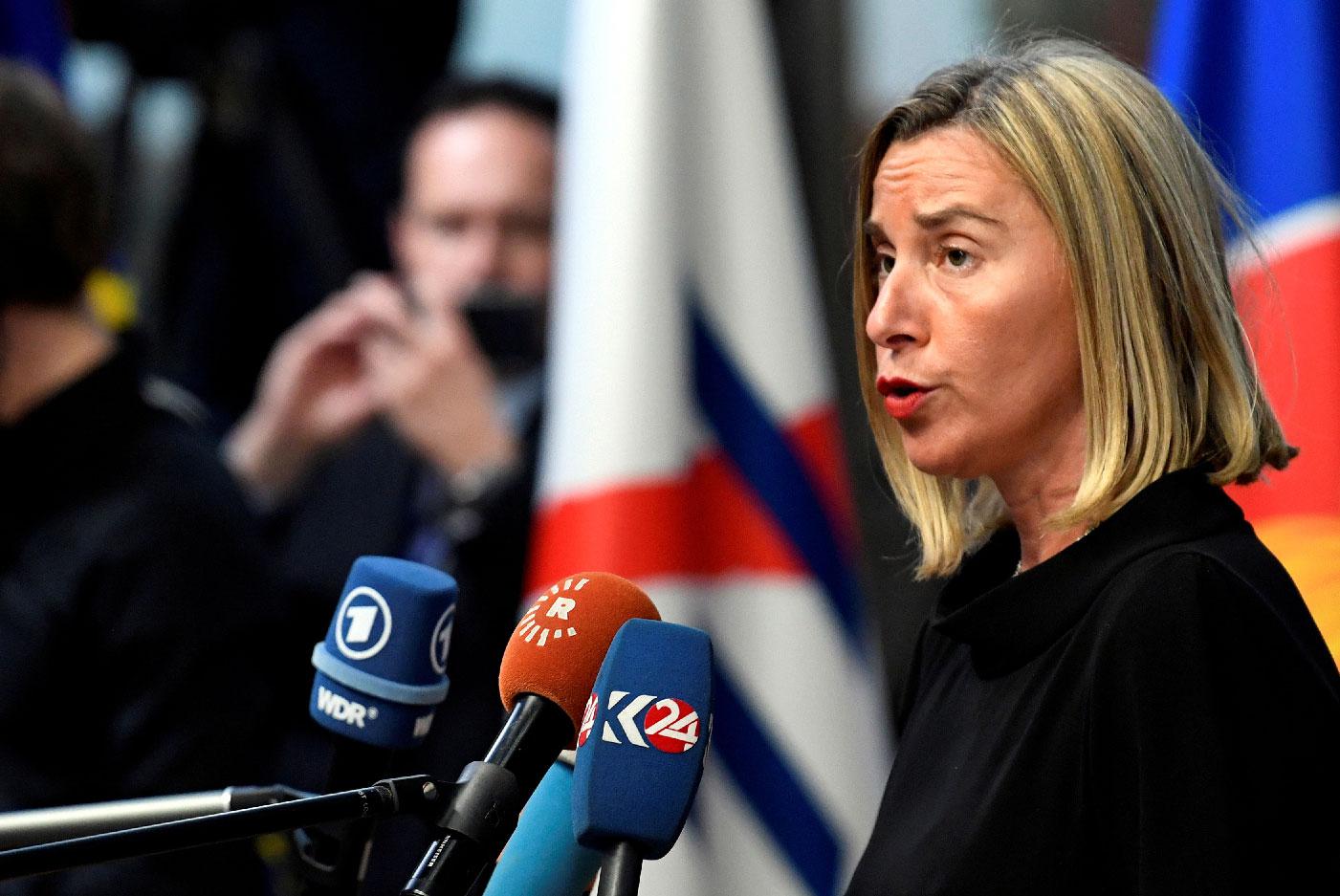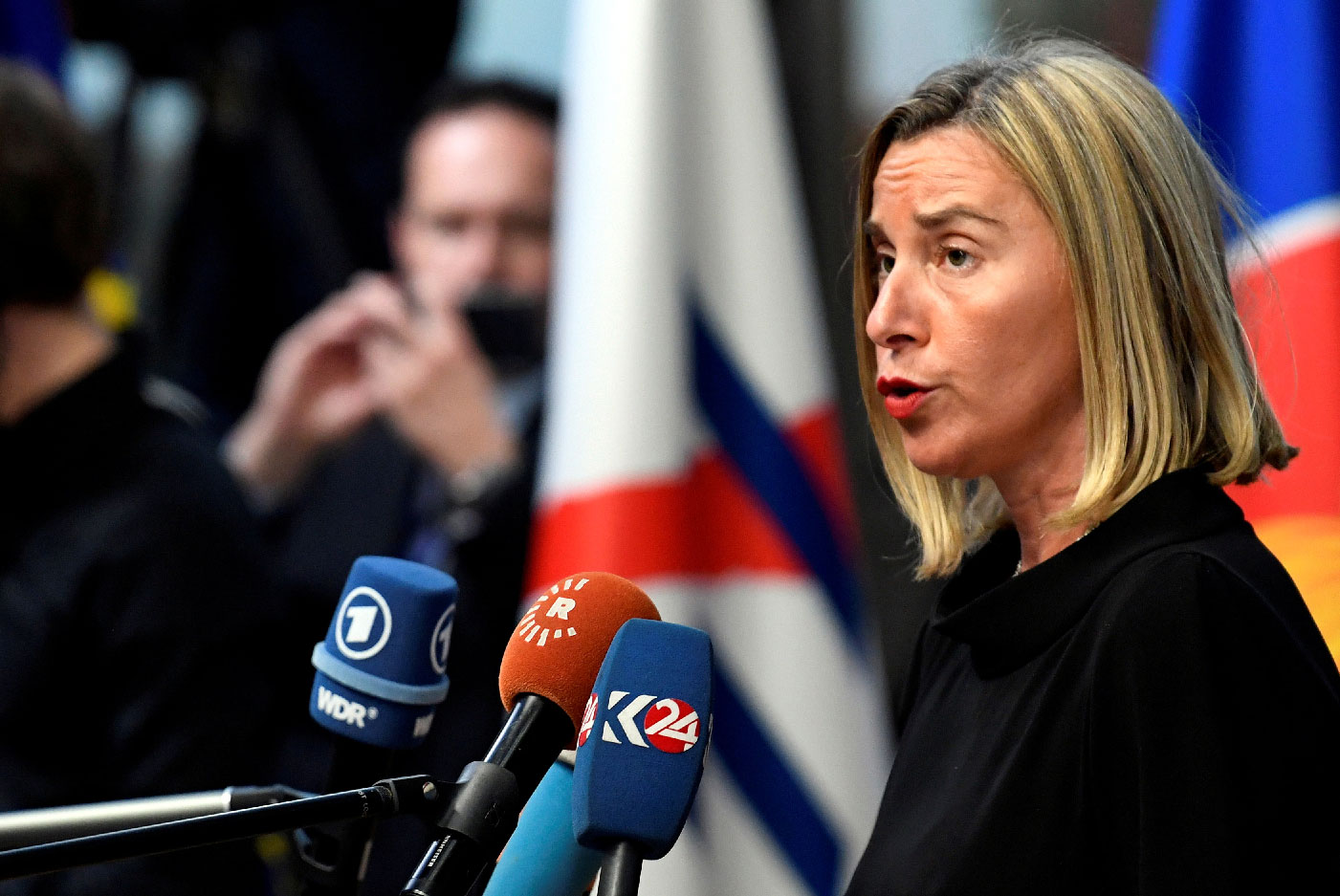Iran seeks EU assurances under pressure from sanctions
LONDON - US President Donald Trump's decision to pull the United States out of the 2015 nuclear accord with Iran and reimpose a raft of sanctions puts European businesses on the spot.
The European Union insists it will stick by the nuclear accord to allow trade to continue with Iran, while Iran has repeatedly called for European assurances of support in the face of Washington's intent to pressure it into curbing its nuclear, missile and regional activities..
European companies, however, are wary of being caught out by the US sanctions regime and many industries have already cut back their presence in the Islamic Republic.
Auto
The sanctions introduced in August spooked the major automakers who were already cautious about their future in Iran and mindful of their much bigger business interests in the United States.
Germany's Daimler, which was teaming up with two Iranian firms to assemble Mercedes-Benz trucks, said it had decided against going ahead.
Volkswagen had said last year it planned to resume business after a 17-year break but was very guarded in response to the latest US decision.
VW "conforms with all the applicable national and international laws and regulations concerning exports," a spokesman said.
French automakers Renault and PSA, who make nearly half the cars sold in Iran, were cautious.
PSA, behind the Peugeot, Citroen and Opel brands, said in June it was preparing to suspend activities in Iran.
Renault says it intends to keep its activities in Iran but stands ready "to reduce the scale very sharply" if need be.
Aviation, tourism
The aviation industry had also seen large contracts reached following the 2015 nuclear accord as Iran set about modernising an ageing fleet, but the US under Trump has revoked licences for Boeing Co and Airbus to sell passenger jets to Iran.
IranAir's Chief Executive Farzaneh Sharafbafi said on Saturday it is looking to buy planes from any company not requiring US sales permits and may consider Russia's Sukhoi Superjet 100.
"We welcome any (company) which is able to provide the planes needed by IranAir. We even have gone after planes such as Sukhoi 100 or planes made by non-European countries," she said, quoted by Iran's Roads Ministry website.
IranAir had ordered 200 passenger aircraft - 100 from Airbus, 80 from Boeing and 20 from Franco-Italian turboprop maker ATR. All the deals were dependent on US licences because of the heavy use of American parts in commercial planes.
Most modern commercial planes have more than 10 percent in US parts, the threshold for needing US Treasury approval. But Russian officials have been reported as saying Sukhoi is working on reducing the number of US parts in the hopes of winning an Iranian order for up to 100 aircraft.
Iran is also potentially a major tourist destination but European companies were quick to pull back after the August US announcement.
British Airways and Air France halted services in September, saying the flights were not commercially viable.
German carrier Lufthansa, Austrian Airlines and Alitalia for the moment continue flights to Tehran.
French hotel chain AccorHotels, which opened an establishment in Iran in 2015, declined to comment on its plans for the future.
Spain's Melia Hotels International chain, which signed a 2016 deal to run a five star hotel in Iran, the Gran Melia Ghoo, said in November it was still going ahead.
Oil and gas
The US said on Friday it will temporarily allow eight importers, who depend heavily on Iranian imports to meet their energy needs, to keep buying Iranian oil when it reimposes sanctions.
Oil is the key issue with global implications for all concerned as Washington aims to cut off Iran's key source of foreign income.
German engineering giant Siemens signed a contract in 2016 to supply gas turbines to Iranian company Mapna.
A spokesman said the company "will take the appropriate measures to bring its affairs into conformity with the multilateral framework concerning Iran."
French energy giant Total announced in August it was pulling out of a massive natural gas project.
Italian energy giant ENI meanwhile has a contract to take two million barrels of oil per month which it will not renew after it finishes this year.
Italy also faces heavy losses in the shipbuilding and railway sectors, national railway operator Ferrovie dello Stato Italiano having signed a deal in 2017 to build a high-speed line linking Qom to Arak in northern Iran.
Shipmaker Fincantieri, engineering firm Maire Tecnimont and gas boiler maker Immergas all signed a string of deals with Iran which are also threatened.
Italy was Iran's largest European trade partner in 2017, with its exports rising 12.5 percent to 1.7 billion euros.
Seeking assurances
Feeling the pressure from the reimposed sanctions, Iran called on Saturday for European assurances of support in the face of Washington's intent to curb its nuclear, missile and regional activities.
Foreign Minister Mohammad Javad Zarif spoke by telephone with the European Union's foreign policy chief, Federica Mogherini, and his counterparts from Germany, Sweden and Denmark about European measures to counter the US sanctions, the Iranian state news agency IRNA reported.
"Mogherini and the European ministers ... highlighted the importance of the finance ministers' commitment to Europe's financial mechanism to save the Iran nuclear deal and said the mechanism will be operational in the coming days," IRNA said.
Diplomats said last week that the new EU mechanism to facilitate payments for Iranian exports should be legally in place by Nov. 4, when the next phase of US sanctions hit, but will not be operational until early next year.
The EU, France, Germany and Britain, said in a joint statement on Friday they regretted U.S. President Donald Trump's decision to restore sanctions on Iran, the world's No. 3 oil exporter.
"Our aim is to protect European economic actors who have legitimate commercial exchanges with Iran, in line with European legislation and the United Nations' Security Council resolution 2231," Mogherini and the foreign ministers and finance ministers of the three countries said in their statement.
The three biggest European powers are co-signatories, along with Russia and China, to an international 2015 deal with Iran that reined in its nuclear work in exchange for the lifting of most international sanctions on Tehran.
With the sanctions clampdown, Trump is seeking to push Iran into stricter curbs on its nuclear programme and a halt to its missile development activity and support for proxy forces in Yemen, Syria, Lebanon and elsewhere in the Middle East.
Trump denounced the nuclear deal, signed before he took office, as flawed in Iran's favour and withdrew Washington from the pact in May.
Indigenous planes
Meanwhile, Iranian state television reported that the Islamic Republic had started production of the locally-designed Kowsar fighter plane for use in its air force.
"Soon the needed number of this plane will be produced and put at the service of the Air Force," Defence Minister Amir Hatami said at a ceremony on Saturday to launch the plane's production, which was shown on television.Iran says the Kowsar is "100-percent indigenously made" and able to carry various weapons and is to be used for short aerial support missions.
However, some military experts believe the fighter jet is a carbon copy of an F-5 first produced in the United States in the 1960s.
Iran's air force has been limited to perhaps a few dozen strike aircraft using either Russian or ageing US models acquired before the 1979 Iranian revolution.
Tehran has sent weapons and thousands of soldiers to Syria to help prop up President Bashar al-Assad's forces, but had to rely on Russia for aerial support due to its own lack of a powerful air force.
The Islamic Republic launched in 2013 what it said was a new, domestically-built fighter jet, called Qaher 313, but some experts expressed doubts about the viability of the aircraft at the time.


